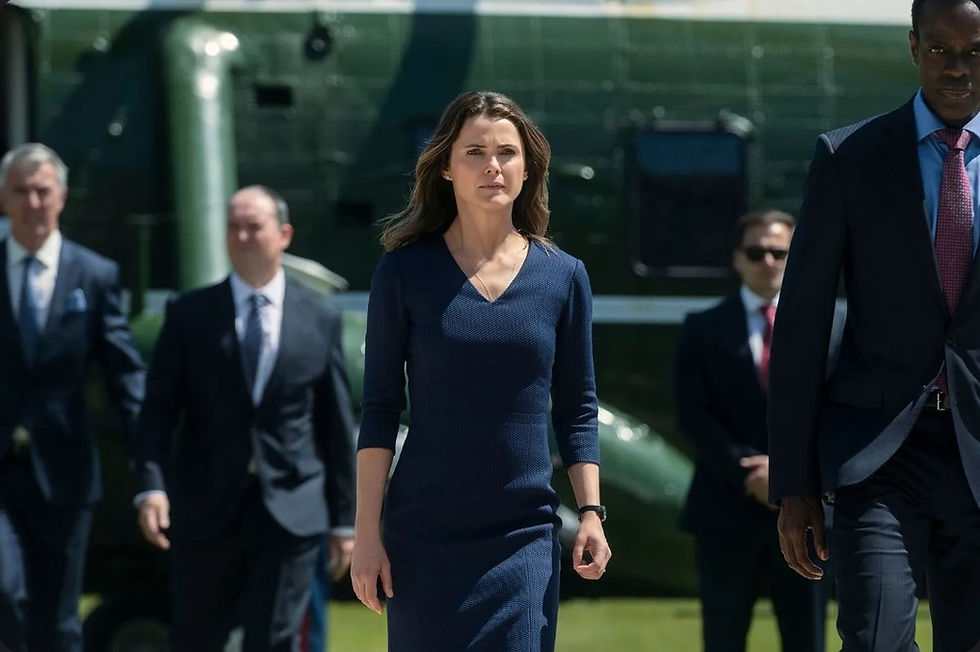BBC What four
- Chris Rogers

- May 26, 2022
- 3 min read
Updated: Jul 23, 2022
For a while in the 2000s it looked like Canadian comedian Mike Myers, of all people, had accurately predicted the expansion plans of the BBC with his fun paean to Britain’s national broadcaster. But with BBC Three shuffled online in 2016 (though it was brought back in February) and today’s announcement that BBC Four is following it into the cloud, unlikely to return, one has to wonder whether Dr Evil has held sway after all.

Both channels were created at the turn of the Millennium for Britain's nascent digital broadcasting system, at a time when all terrestrial television was analogue. As such they were only available via purchase of a standalone decoder box or one of the very few new TV sets with such a tuner built in, both later marketed under the Freeview name. Originally known as BBC Choice, putting out material for general and then specifically young adult audiences, and BBC Knowledge (documentary, cultural and educational programmes) respectively, the channels were intended to draw people across to the new platform in readiness for the switchover of all channels from all providers.
This was crucial with BBC Four especially as with it now the destination of choice for the Corporation’s arts output, BBC Two was freed to become the place where reality shows of all flavours dominated.
Both channels evolved over the years and both generated their own content as well as hosting programmes that had moved from other channels – indeed some went the other way when popular. They even began making drama series, albeit modestly budgeted and often based on memoirs and biographies, and importing them – from Mad Men to Borgen on BBC Four. The fuss five years ago around BBC Three’s mooted then actual shift online signalled the ‘problem’ of how and why younger people watch, whilst parallel concerns of late over BBC Four’s fate focussed the debate on aging audiences and the wider purpose of the BBC. Last year’s decision to stop commissioning original programming for the latter channel and employ it only for repeats was obviously controversial; its more recent – and largely unheralded – use for film screenings too should be, given BBC Two’s trajectory.
The financial and cultural pressures on the BBC that have forced today’s announcement don’t need repeating here, nor the rather tangled justification for the return of BBC Three to linear format (on the BBC’s own 6 o’clock news just now we were told this new decision is part of the corporation’s “digital first” strategy, but that only works if you define ‘digital’ as meaning ‘online’ – almost all BBC programmes are originated, edited and broadcast ‘digitally’). Given the constraints now applied to the BBC no-one could argue that change is needed, and no-one should argue against much of what today's announcement contains besides this especially the merger of news channels. But the BBC Four move is a mistake.
It is worth noting – as the Guardian does this evening – that BBC Four’s “diet of vintage architecture programmes and old episodes of Top of the Pops has beaten youth-focused BBC Three” in the ratings; the ironies are obvious. Another, now, is that in its rush to embrace - one might say capture - younger viewers we now have the bizarre position of a channel aimed at that demographic being returned to traditional broadcast television whilst one largely watched by older audiences is pushed into the ether. The result is that programmes made by the nation’s main broadcaster and watched on a set in the corner of the room for many will be unlikely to feature design, music, painting, anthropology, history and all the rest in a few months’ time, since not even three quarters of the country as a whole has a smart TV capable of receiving and displaying internet signals, let alone those households likely to watch - many of that group don't even have an internet connection. If those subjects do appear in the online-only regime, then, viewing will be a seriously inferior experience in these cases since watching a TV programme on a laptop is like watching a cinema film on a TV. Since internet-served programming doesn't work like that on traditional television, where any given channel is always 'on' whenever you dip in, I also suspect those licence fee payers will not stay for very long if they do give it a try.
Getting rid of BBC Four like this does reduce the BBC to three of those traditional channels, and it still seems happy to number them despite their hugely different nature. By chance it was only a few weeks ago that I speculated on another forum that the Beeb could, in line with others, relabel its channels One to Four as BBC Prime, BBC Life, BBC Now and BBC Then… My idea is still available for a small fee, even if one of the actual channels won't be for many.
Image and text amended edited 28 May



Comments